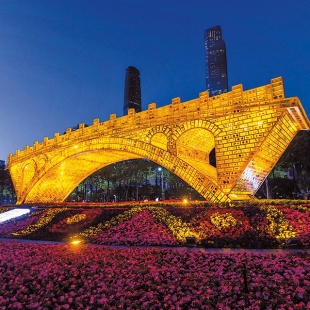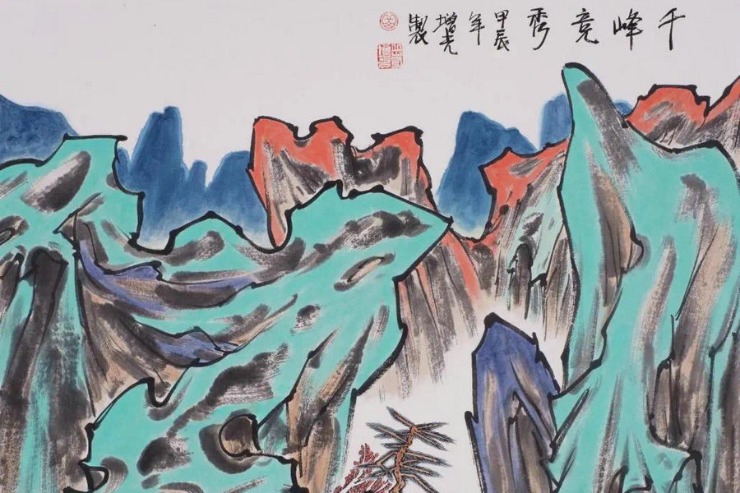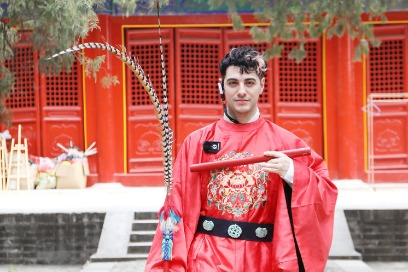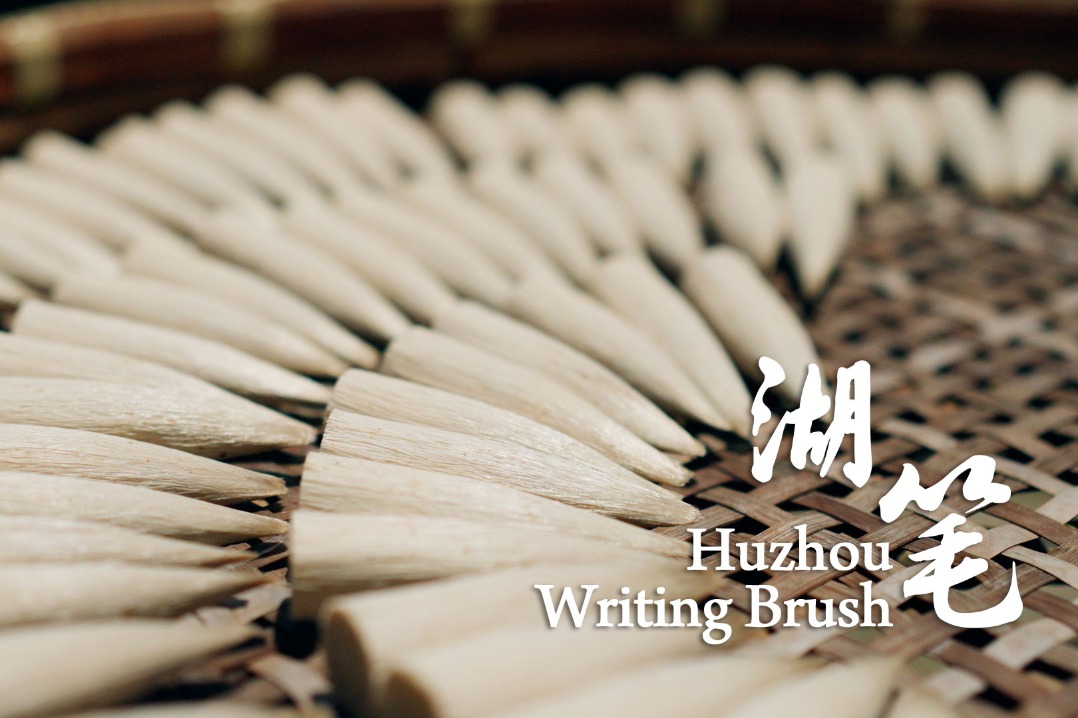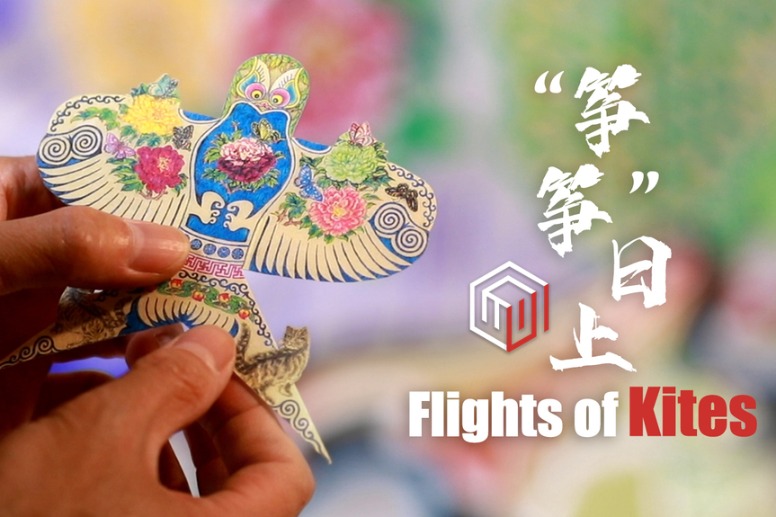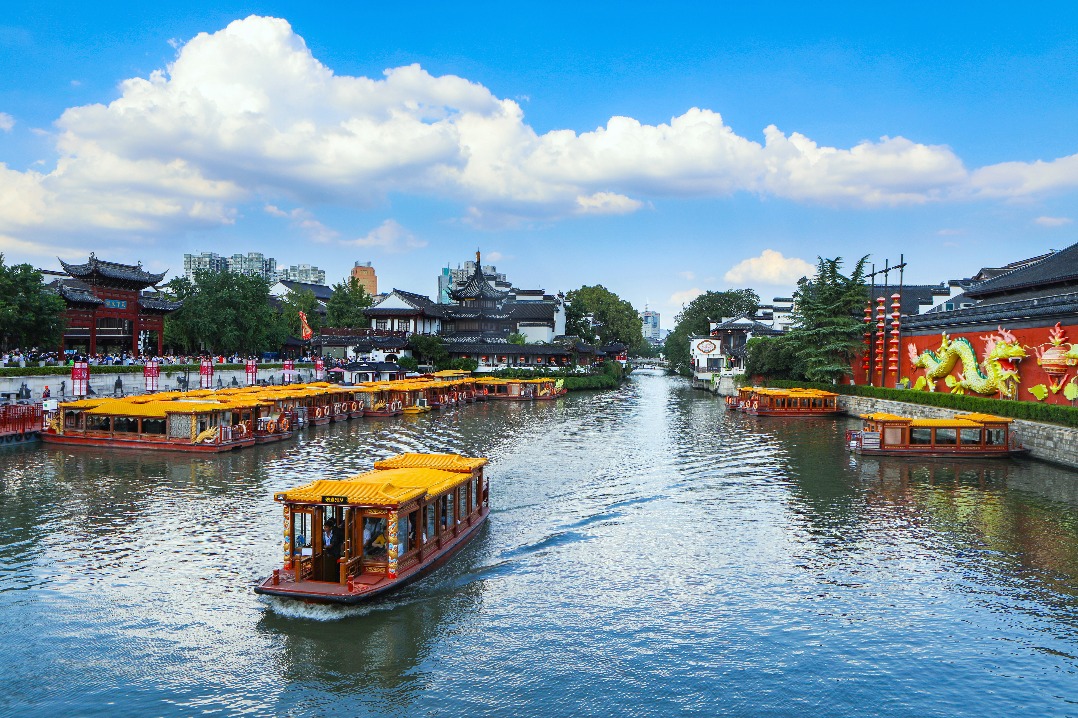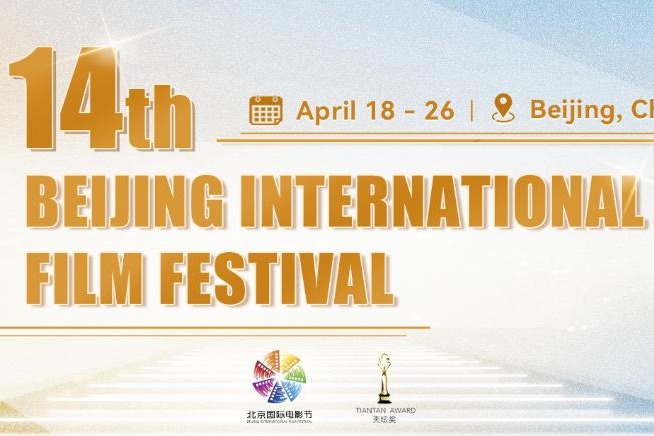Delegate busy building bridges to the world

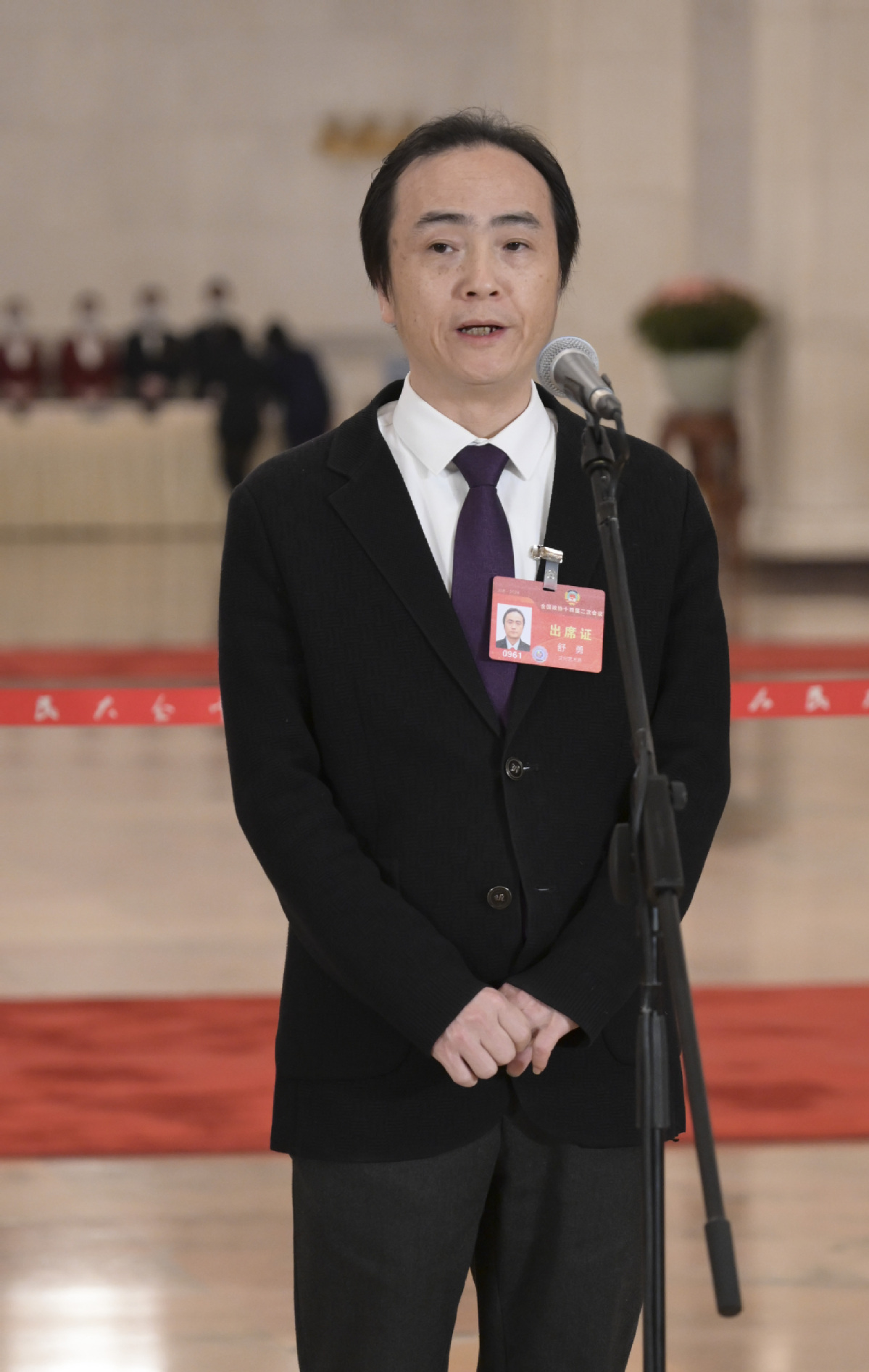
"The taste of China, and Chinese manufacturing, have become familiar and vibrant cultural symbols, connecting people from different fields and backgrounds around the world," said Shu Yong, a member of the Chinese People's Political Consultative Conference National Committee, during an interview at the Great Hall of the People in Beijing on Thursday.
Vice-president of the Kaiming art academy of the Central Committee of the China Association for Promoting Democracy, Shu often holds exhibitions and events around the world. Whenever he arrives somewhere new, he instinctively looks for familiar things to help him find his way.
"Every time I see the five-star red flag, Chinese signs, and Chinese lanterns, I instantly gain confidence and no longer feel lost. These familiar cultural symbols give me confidence and strength," he recalled.
In recent years, amid the continuous flow of international interactions, Shu has noticed a significant shift in the conversations of foreign associates regarding China. No longer limited to discussions of iconic landmarks like the Great Wall and the Forbidden City, they increasingly delve into personal experiences such as riding high-speed trains, using new energy vehicles, and even relishing the flavors of authentic Hunan cuisine.
Shu emphasized the importance of creating strong cultural symbols for telling China's story in the modern era.
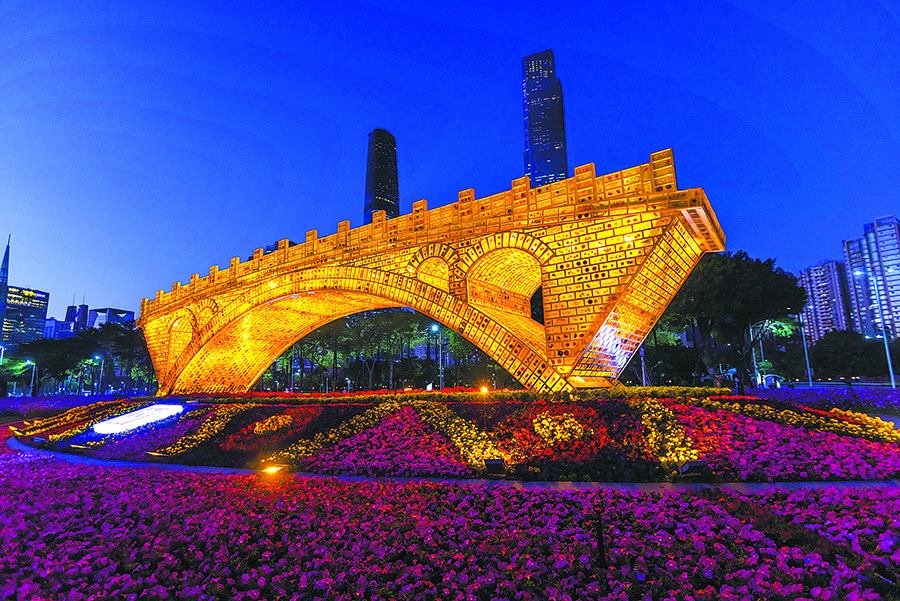
In 2013, he created a large-scale sculpture titled The Silk Road Golden Bridge. Inspired by the Zhaozhou Bridge, the sculpture is made of 20,000 transparent bricks. Shu said that it symbolized the unity of humanity, and he believes it left a lasting impression worldwide, showcasing China's goodwill and spirit.
Looking ahead, Shu plans to build 100 Silk Road Golden Bridges in 100 cities worldwide. He said his goal is to promote Chinese civilization, enhance its global influence, and contribute to China's modernization while fostering international understanding of its values and progress.


